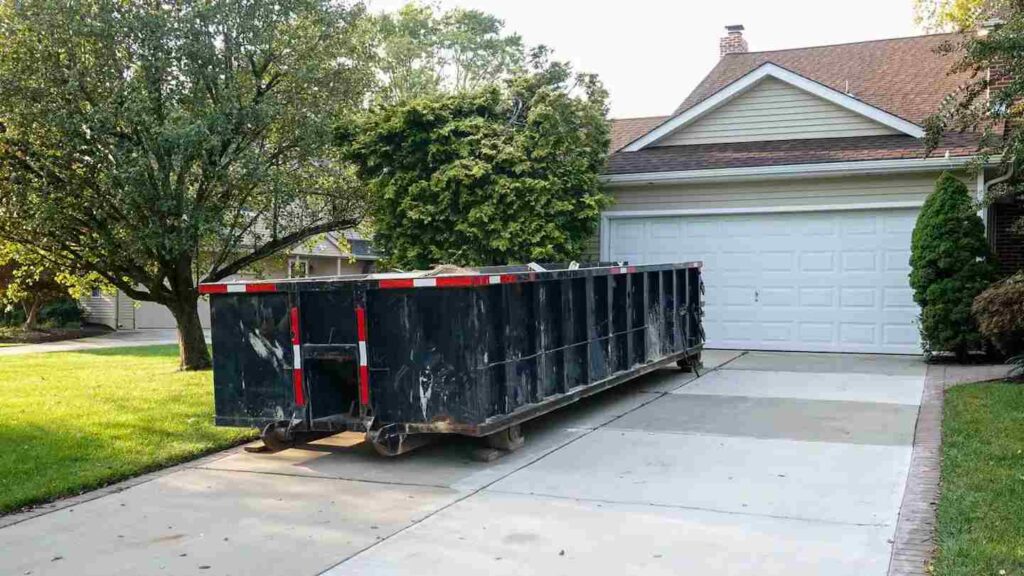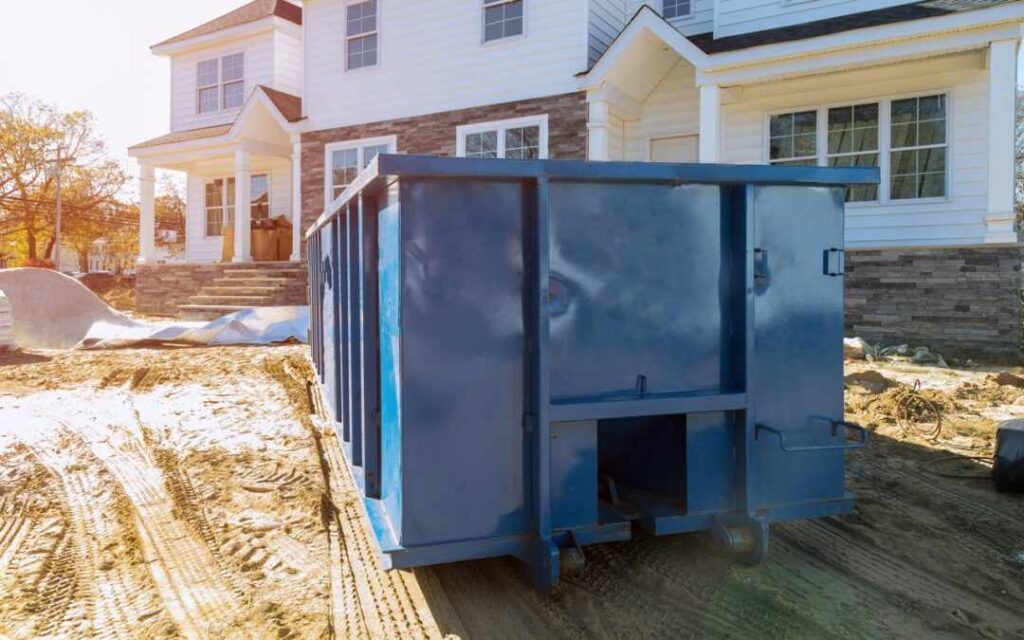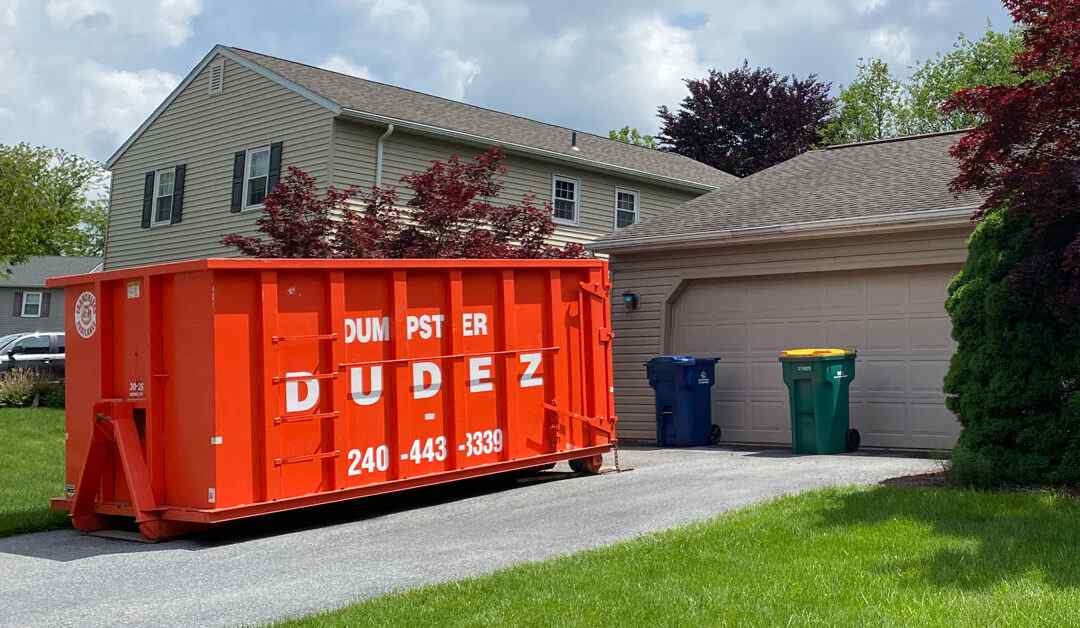Navigating the intricacies of dumpster rentals in Michigan requires a comprehensive understanding of weight limits to ensure a seamless waste management process. Weight restrictions play a pivotal role in the efficient disposal of various materials, safeguarding both the environment and the integrity of rental equipment. This introduction delves into the critical aspects of comprehending weight limits in Michigan dumpster rentals, shedding light on the regulatory framework and practical considerations. Whether embarking on a residential cleanup project or managing commercial waste, grasping the nuances of weight limits becomes paramount to avoid penalties, delays, and potential damages. As A&B Junk unravel the complexities surrounding weight limitations, this exploration aims to empower individuals and businesses with the knowledge needed to make informed decisions, fostering responsible waste disposal practices across the diverse landscapes of Michigan.
Weight Limits:
Dumpster rental companies in Michigan typically impose weight limits on their containers. These limits are expressed in terms of tons or pounds, depending on the company’s specifications. The weight limit is essentially the maximum amount of debris and waste that can be placed in the dumpster without incurring additional fees or facing logistical issues during transportation.
Common weight limits for residential dumpsters in Michigan range from 1 to 3 tons. However, it’s crucial to note that weight limits can vary based on the size and type of the dumpster. Commercial or industrial dumpsters may have higher weight limits due to their larger size and capacity.
Understanding the weight limits is the first step in ensuring a successful dumpster rental experience. It helps customers choose an appropriately sized container for their needs and prevents potential complications during the rental period.
Types of Debris:
The type of debris being disposed of plays a significant role in determining the overall weight of the load. Different materials have varying densities, impacting the weight of the waste. For example, dense materials like concrete, brick, or roofing shingles can quickly add up in weight compared to lighter materials such as cardboard or wood.
When renting a dumpster in Michigan, it’s essential to consider the types of debris you’ll be disposing of. Communicate this information to the rental company, as it can help them recommend the right dumpster size with an appropriate weight limit. This proactive approach ensures that the weight limit aligns with the specific characteristics of the waste you need to dispose of.
Exceeding Weight Limits:
One of the critical considerations when renting a DIY or professional dumpster in Michigan is staying within the specified weight limits. Exceeding these limits can lead to additional fees, and the amount of excess weight often determines the extent of these charges. It’s vital for customers to be aware of the weight limits and make a conscious effort to manage their debris within these parameters.
Exceeding weight limits not only incurs extra costs but can also pose logistical challenges during the removal process. Dumpster rental companies have to comply with transportation regulations, and exceeding weight limits may result in the need for additional trips or specialized equipment, further adding to the expenses.

Communication with Rental Company:
Effective communication with the dumpster rental company is key to a successful and stress-free experience. When arranging a rental, provide detailed information about the type and quantity of debris you plan to dispose of. This allows the rental company to guide you in selecting an appropriately sized dumpster with a suitable weight limit.
Experienced rental companies in Michigan can offer valuable insights based on the nature of your project. They may recommend specific containers that are better suited to handle the weight and volume of your waste, ensuring that you stay within the established limits. Open communication fosters a collaborative relationship and enhances the overall efficiency of the dumpster rental process.
Additional Costs:
Understanding the potential for additional costs is crucial for budgeting purposes when renting a dumpster service in Michigan. Exceeding weight limits often leads to extra charges, and these fees can vary depending on the amount of excess weight. Being aware of these potential costs allows customers to plan accordingly and avoid unexpected financial surprises.
Customers should inquire about the specific fee structure related to exceeding weight limits when negotiating the terms of the dumpster rental. Some companies may have a straightforward pricing model, while others may calculate fees based on a tiered system. Being informed about the potential financial implications ensures that customers can make informed decisions and adhere to weight limits to avoid unnecessary expenses.
Environmental Considerations:
In addition to weight-related concerns, it’s essential to factor in environmental considerations when renting a dumpster in Michigan. Certain materials, such as hazardous waste or electronic waste, may have specific disposal regulations. Understanding these regulations helps ensure that you comply with environmental laws and regulations.
Dumpster rental companies often provide guidance on acceptable and unacceptable materials. Hazardous materials, like chemicals or paints, are generally prohibited. Responsible waste disposal not only helps protect the environment but also prevents potential legal consequences for improper waste handling.
Before renting a dumpster, familiarize yourself with local environmental regulations and coordinate with the rental company to guarantee that your waste disposal aligns with eco-friendly practices.
Time Constraints and Scheduling:
Time constraints and scheduling are crucial considerations in the dumpster rental process. Most rental agreements specify a rental period, and exceeding this timeframe may result in additional charges. Be mindful of your project timeline and plan the dumpster rental duration accordingly.
Coordinate with the dumpster rental company to establish a suitable drop-off and pick-up schedule. This ensures that the dumpster is available when you need it and is promptly removed once your project is complete. Efficient scheduling not only prevents unnecessary fees but also contributes to a well-organized and timely waste disposal process.

Weight Distribution:
In addition to staying within the overall weight limit, it’s equally important to consider the distribution of weight within the dumpster. Proper weight distribution helps maintain stability during transportation and ensures the safety of both the hauling equipment and those in the vicinity.
When loading the dumpster, try to evenly distribute heavier and lighter materials. Avoid concentrating heavy items on one side, as this can lead to imbalance and potential safety hazards. By paying attention to weight distribution, customers contribute to a smoother transportation process and reduce the risk of accidents or damage to the container.
Dumpster rental companies often provide guidelines on proper weight distribution, and customers should follow these recommendations to optimize safety and efficiency.
Estimating Weight:
While it can be challenging to accurately estimate the weight of debris, especially for those without prior experience, some dumpster rental companies offer tools or guidelines to assist customers in making informed estimates.
Factors such as the volume and type of debris, as well as any specific materials with high density, contribute to the overall weight. Utilize the resources provided by the rental company, such as online calculators or weight estimation guides, to get a rough idea of the expected weight. Keep in mind that these are estimates, and actual weights may vary, so it’s advisable to err on the side of caution and choose a dumpster size with a slightly higher weight limit if uncertainties exist.
Permit Requirements:
Before placing a dumpster in Michigan, it’s essential to be aware of any permit requirements, especially if the dumpster will be located on public property. Local regulations may necessitate obtaining a permit for the placement of dumpsters on streets, sidewalks, or other public areas.
Check with the local municipality or dumpster rental company to determine if a permit is needed. Failing to secure the necessary permits can result in fines or legal issues, adding complications to the rental process. Understanding and complying with permit requirements contribute to a hassle-free experience and prevent potential legal repercussions.
Conclusion:
In conclusion, comprehending weight limits in Michigan dumpster rentals is pivotal for ensuring a seamless waste disposal process. Adhering to these limits is not just a matter of regulation, but it also contributes to environmental sustainability and operational efficiency. By understanding and respecting weight restrictions, individuals and businesses can prevent potential penalties, maintain the structural integrity of rental containers, and promote responsible waste management practices. It reflects a commitment to community well-being and compliance with local guidelines. Moreover, staying within the specified weight limits fosters a safer working environment for both the waste disposal personnel and the general public. In essence, awareness of weight restrictions is integral to maximizing the benefits of dumpster rentals, fostering environmental consciousness, and fostering a culture of responsible waste disposal in Michigan.




